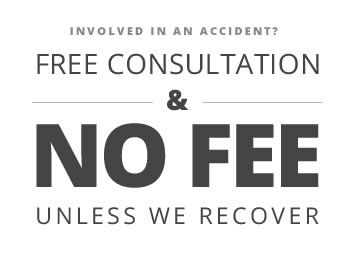On February 14, 2018, the federal Food and Drug Administration (FDA) approved usage of a ground-breaking blood test that can diagnose concussion in patients who have suffered head injuries. According to NBC News, the primary advantage of the test is that the victim obtains a faster, more accurate diagnosis without the need of exposure to radiation. The test will be most useful in cases in which there is some doubt as to whether the individual has suffered a concussion, such as after a car accident when the victim does not show obvious signs.
There are some medical experts that are wary of the FDA-approved concussion test and have certain concerns about its accuracy. Until there is more information available and the test is proven in actual real-life settings, they recommend that you keep an eye out for symptoms of concussion if you are injured in a Maryland auto accident.
Overview of Concussion Injuries
The brain is surrounded by fluid and protective membranes, and encased in the strong bone material of the skull. Still, this protection is not enough to prevent head injuries in a car accident. A concussion occurs when the head suffers such a violent impact that the brain makes contact with the skull. Bruising and bleeding are common, but there can also be serious injuries from tearing or stretching of the nerve tissues. The fine balance of chemicals in the brain is disrupted, which can impair cell function.
Symptoms in the Immediate Aftermath of a Car Accident
Loss of consciousness and amnesia regarding the auto collision are obvious signs of concussion, so you should seek medical attention right away. In addition, other signs include:
- Headache;
- Confusion, light-headedness, or dizziness;
- Ringing in your ears;
- Blurred vision;
- Nausea or vomiting;
- Slurred speech;
- Fatigue; and,
- Any symptoms that seem out of the ordinary based upon your average state of health.
Delayed Indications of Concussion
In some cases, the signs of a concussion may not show up for hours or days after the auto accident, which is why this type of head injury is so dangerous. Monitor your health and talk to your doctor if you experience:
- Difficulties with concentration and memory;
- Personality changes such as irritability, anger, anxiety, or depression;
- Sensitivity to light or sound;
- Problems falling or staying asleep;
- Another usual sleeping patterns; and,
- Changes to other senses, including smells and tastes.
For many concussion victims, these symptoms will clear up within a few weeks and a medical professional will suggest rest to treat the injuries. Where these indications last longer, they can cause significant implications for cognitive function, especially in children. It is also important to note that there may be some overlap in the symptoms of concussion and traumatic brain injuries. Generally, TBIs are more serious than a concussion and can even be life-threatening.
Despite the FDA’s recent approval on the blood test to diagnose concussions, there are some medical professionals that have doubts about its accuracy. As such, you should still stay vigilant about the signs of concussion and seek proper medical care if you do experience symptoms after a car accident. For more information about concussion and your rights in an auto collision case, please contact the office of Baltimore County, MD attorney Michael A. Freedman.
See Related Blog Posts:


